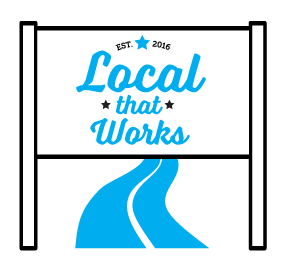Local that Works

Local that Works spotlights innovative and replicable content, engagement and revenue initiatives at public radio and TV stations and nonprofit and digital news organizations in the U.S. LTW includes an annual contest and a database (below). LTW produces webinars that offer insights into projects and organizations that are reshaping local civic journalism.
Explore the database of 635 Local that Works projects. Check out Local that Works contest Winners, Finalists and Semifinalists by clicking on those colored tags.
Other tips on using the database: If viewing this on a computer, all projects are listed in the left column. Click on a project name and its longer profile will appear in the right column. If viewing on mobile, clicking on a project name will load the full listing on your screen.
Filter your results by selecting a tag or multiple tags in the categories drop down menu and clicking on search. IMPORTANT: Make sure to deselect your checked categories for subsequent searches.
Search & Filter Projects
28 results found.
Projects
#CheckYourJudges
Injustice Watch
After the Assault
CapRadioVote with Confidence: A Guide from the Detroit Documenters
Outlier Media
Minnehistories
TPT - Twin Cities PBSGreat Salt Lake Collaborative
Great Salt Lake Collaborative
Mission Metrics
The Oaklandside
Recording Inclusivity Initiative
All Classical PortlandMass. Election Prep: Become An Informed Voter In 7 Days
WBUR
WHYY’s News and Information Community Exchange (N.I.C.E.)
WHYYNews414
Wisconsin Watch (in partnership with Milwaukee Neighborhood News Service and Outlier Media)Kansas City PBS Reproductive Rights Initiative
khudson@kansascitypbs.org
https://kansascitypbs.org/reproductiverights
Key Components of the Reproductive Rights Package
On-Air Coverage-The Flatland show is a collaborative effort between our production and journalism teams that offers a monthly program taking a deep dive into a single topic that is raising questions in our community. The July 21st episode begins with a documentary short featuring b-roll and, interviews with local experts. This short was followed by an in-studio session moderated by show host, D. Rashaan Gilmore. The program was distributed over the air, through the PBS video app, on YouTube and online at flatlandkc.org.
Show Link: https://video.kansascitypbs.org/video/reproductive-rights-1q7dy2/
curiousKC: The team put the call out for reproductive rights questions through social media, over broadcast and via an online form. Submissions from our community informed throughlines in our reporting on the topic of reproductive rights.
Efforts sourcing audience questions resulted in the following articles:
curiousKC | A Guide to What You’ll See in the Aug. 2 Kansas Primary About Abortion
Twitter Space: Moderated by Flatland show host, D. Rashaan Gilmore, the discussion included senior reporter Mary Sanchez and a panel of local experts. It provided additional context to some of the overarching themes of the show and presented the listeners with a chance to weigh in, in real-time. Link to Recorded Twitter Space: https://twitter.com/i/spaces/1yoKMWWZOwwJQ
Engagement Event: Our team also planned an event in collaboration with community partner American Public Square, “A Community Conversation on Reproductive Rights” which was moderated by our senior reporter Mary Sanchez. The event (offered virtually and in-person) convened a panel of local experts to discuss the economic, legal and human implications of the decision. Event Link: https://americanpublicsquare.org/event/a-community-conversation-on-reproductive-rights/
Journalism: Throughout the course of the project we posted 14 articles to our website which were promoted through a variety of distribution avenues to reach a diversity of audiences. Posted content was written by our own journalists, supplied by regular contributors and shared by various KC Media Collective Partners, and focused on a wide range of angles on the topic.
Our team went behind the contentious debate and provided a platform for the voices of those affected. The Reproductive Rights package is a true representation of the thoughtful, nuanced, and educational approach that guides our everyday work. The multimedia approach to content truly found audiences where they are and offered a path to balance and in-depth coverage regardless of where people find their information. We’re continuing to cover new angles after most press (especially national) have stepped back, now that the August 2 vote is passed. Over the course of the project to date and spanning the various content components we garnered 38,351 impressions (page views, broadcast impressions, social media post impressions, etc…). In a post-event survey, nearly 80% of respondents indicated that they gained insight into the topic.
Comments: “I appreciated attending with the group. Very nice selection for the panel. There was spontaneous applause (against the rules, I know) when the doula talked about the effect of the abortion bans on BIPOC people.” “This program was great. Now watching both sides' ads on TV--both have inaccurate information. That should be called out.” "With so much polarizations around political or social issues it is great to see people with vastly different views speaking civilly to each other was refreshing and educational. Modeling behavior is one of the ways we learn, please keep it up!”


